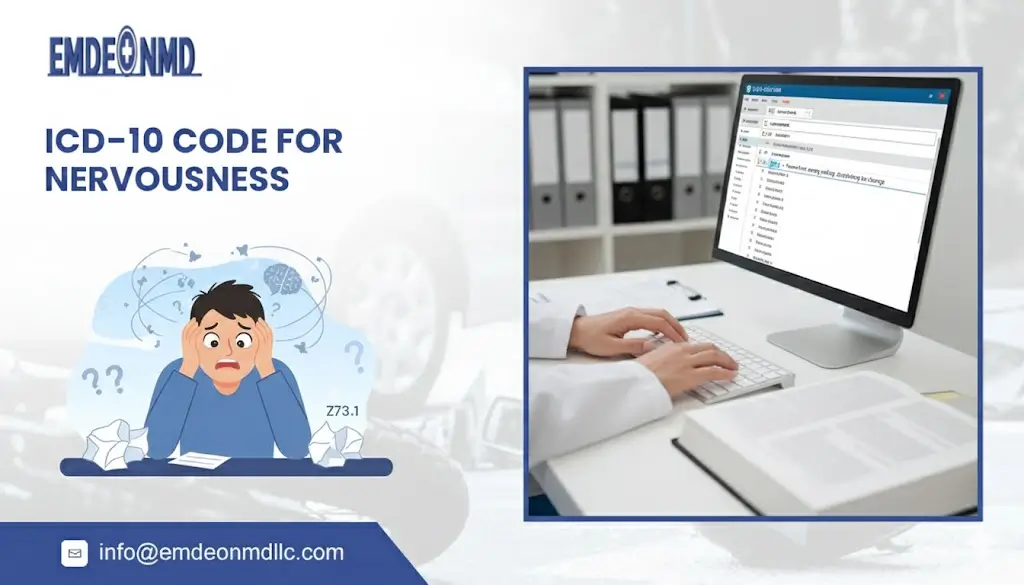Table of Contents
Have you noticed what is the most challenging and prime component of medical billing? Denials are the most prevalent and challenging medical billing component, and advanced expertise is required for accurate and proper management of denials in an effective manner. It is considered the most common cause of ineffective and inaccurate billing. In the healthcare revenue cycle, it is of prime importance to ensure an accurate billing process followed by proper and timely payment collection and reimbursements to the healthcare provider. Have you ever faced claim reimbursement issues? Here is a detailed overview of denials integrated with contractual obligations.
Introduction to CO-45 denial
Denial is a broad term covering various types. In medical billing, denial types are specific to certain functionality, in which CO-45 contractual obligation adjustment is of major importance.CO-45 denial overview covers a type of payment related denial, concerned with contractual obligations in which the payer lowers the payment as a result of a pre-negotiated contract with the provider. Do you have any idea what the claim adjustment reason code 45 is? CO-45 denials are most common in Medicaid, Medicare, and another private insurance provider, producing an overall significant number of CO-45 denials in billing, as it impacts revenue cycle management RCM, affecting cash flow, in turn, the whole billing system is affected in negative terms.
How does CO integrate with denial 45?
Contractual obligation CO-45 is a command terminology in which CO and denial 45 are individual identity while CO-45 denial is an integrated form of denial that mainly improves billing practice with maximum optimization, in turn lowers loss in revenue followed by enhanced reimbursements of insurance claims. In CO-45 denials CO refers to insurance claim adjustments, also termed as charge exceeding fee schedule.CO-45 payer policies make it obligatory for providers to write off excess charges, having no liability to bill the patient for the difference. There are various forms of integration of CO and denial 45. Some are as follows:
- Provider insurance contract agreement
- Fee schedule and adjustment of payment
- Explanation of benefits EOB & remittance advice
- Influencing revenue cycle management RCM
Most prevalent contractual obligation in billing
Insurance contractual adjustments in which CO-45 denial is considered most prevalent, CO in medical billing, in which claim payment reductions as a result of a pre-negotiated agreement between the provider and the suffering patient. Due to the most prevalent type of CO, proper consideration is required for efficient management to avoid delay in reimbursements, or revenue cycle management (RCM). Some other less common CO in medical billing includes:
- CO-42 considered with claim exceeding payer’s maximum limit
- CO-253 termed as sequestration adjustments
- CO-144 is classified as an incentive adjustment in which value-based payment models are handled
CO-45 denial leading factors
As far as CO-45 denials are concerned, various reasons act as leading causes for this type of denial. It mainly occurs when the payer payment exceeds the limit that leads to adjustments per payment contract, in which CO-45 denial is being deployed. What are the main reasons contributing to contractual obligation adjustment CO-45? Is CO-45 denial valid or invalid?Do there exist a solution to this? Here are some key factors that act as leading contributors for contractual obligation:
- incorrect fee schedule
- payer contract misinterpretation
- Improper medical coding involving inaccurate usage of CPT, HCPCS, & modifiers
- Duplicate claim submission
- Limitation in insurance policy & benefit caps
- No insurance verification & coordination of benefits COB issues
CO-45 denial prevention techniques
CO -45 being the most prevalent contractual obligation denial in medical billing needs proper measures for ensuring adequate handling of claims, for which medical billing best practices are adopted, which include regular updates of medical codes, ensuring payer contract compliance by managing write offs efficiently. Vald and timely verification of insurance followed by primary and secondary payer should be considered as the most significant for assurance of minimized CO-45 denial resulting from errors in coordination of benefits COB. Effective negotiation of payer contracts along with in-depth knowledge about in-network and out-of-network physicians can help manage the fee schedule, making the contract compliant to the payer needs.
Appeal submission for CO-45 denial
CO-45 denials are considered valid denials, which means that they require adjustments and submission of an appeal for necessary action, complaint to the payer, and the patient needs. Appeal submission and response is a comprehensive process that is broken down into several steps to avoid confusion. First billed amount is verified with respect to the allowed amount with detailed review on coding or related mistakes followed by validation of CO-45 denial supported by documents to justify appeal, that can be ensured by addition of correct claim submission along with formal appeal to the provider.
Real life CO-45 denial cases
Due to the high prevalence of CO-45 it can be analyzed, and interpreted to improve in future billing practices with minimized risk of contractual obligation adjustment, making the billing process efficient and error free. For billers and coders to avoid errors and denials, daily life examples on online platforms can be helpful to get a detailed overview regarding the most prevalent situations, followed by handling for those cases. Here is a case of a physical therapist billed therapeutic exercise and manual therapy simultaneously without the addition of respective modifier, that in turn leads to contractual obligation CO-45 denial due to bundling of services by the payer followed by CO-45.To resolve this, the claim was resubmitted with proper addition of modifier, leading to full payment reimbursement.
Final verdict
CO-45 is a payment-related denial, considered most relevant contractual obligation due to valid and recoverable error that can be managed by professional billers and coders with professional expertise, in turn impacting medical billing and revenue cycle management RCM, leading to increased administrative burden and delayed reimbursements followed by impaired patient care.
Emdeon MD expert denial management
Worried about an efficient outsourced billing company with the best denial management? haven’t got one, Emdeon MD is here to help in this regard with efficient and accurate billing and RMC services followed by efficient denial management handled by professional experts. For queries, get in touch with us through contact, book yourself for making your services the best ones.
Frequently asked questions (FAQs)
1. What is a CO-45 denial?
A contractual obligation adjustment where the payer reduces payment based on a pre-negotiated agreement.
2. Can CO-45 denials be appealed?
Yes, if errors like incorrect fee schedules or coding mistakes are found.
3. How can CO-45 denials be prevented?
By verifying insurance, using correct codes and modifiers, updating fee schedules, and ensuring payer contract compliance.
4. Can patients be billed for CO-45 adjustments?
No, as CO-45 adjustments are contractual obligations between the provider and the payer.













